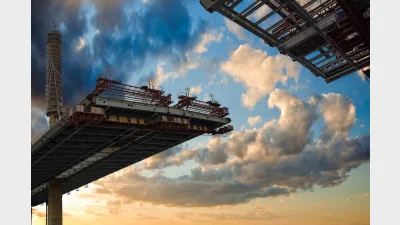Unlisted assets hold promise for super funds



Australia’s largest superannuation funds have turned their sights to offshore investments even as their interest in private assets continues to rise, according to research.
Unlisted assets such as infrastructure, private equity, and real estate are set to play an ongoing key role in portfolios and future investment strategies.
JP Morgan’s 2023 Future of Superannuation report, which collated data from six superannuation fund leaders in Australia and the UK, found growing funds are moving offshore but not limiting themselves to listed markets.
“Unlisted assets have been a significant driver of their long-term outperformance,” the report stated.
“While funds also see opportunities in listed vehicles — and remain mindful of illiquidity and valuation issues — their appetite for private market assets continues to grow.”
The $270 billion fund AustralianSuper, Australia’s largest super fund, already has about one-quarter of its balanced portfolio invested in private assets and said it plans to increase that allocation.
“Public and private markets each have their own benefits and constraints, so we like to keep a good mix of both in the portfolio,” explained the fund’s head of international investments, Damian Moloney, who was recently named deputy chief investment officer (CIO).
“Listed markets give us access to a diverse range of return streams at low cost and allow us to move allocations rapidly. On the other hand, private markets give us access to companies and other investments, like infrastructure, that aren’t available through listed markets. They have proven to be a great long-term investment for members.”
With many promising unlisted asset investment opportunities offshore, super funds have embraced setting up offices overseas to build new relationships and more closely assess investment opportunities, the report said.
AustralianSuper opened a New York-based global office in 2021 and estimates the global team to grow from the current 100 staff to some 300 by 2026.
Similarly, Aware Super plans to set up its first offshore office by the end of 2023, which will focus on private markets.
“In private markets you really do need to have a physical presence there to set up proper origination, business development, sourcing, and then due diligence and asset management activities,” explained Damien Webb, Aware Super deputy CIO and head of international.
This outward-looking trend is largely seen among the funds with more than $100 billion in assets under management, JP Morgan noted, while funds in the $50–$100 billion range have taken a ‘wait and see’ approach regarding the benefits of offshore offices.
According to $80 billion fund Cbus, part of the appeal lies in super funds growing faster than available local investment opportunities.
“As you get bigger, and because of the positive cash flows, funds are growing faster than the investment opportunities in Australia,” explained Cbus chief executive, Kristian Fok.
“Investing offshore also allows the fund to access investments that you can’t easily access in Australia, whether it’s biotech or other sectors.”
According to APRA, large super funds (excluding self-managed super funds) on average now allocate more to international equities (25.5 per cent) than Australian equities (20.8 per cent).
Funds have also embraced strong internal investment teams, which comes with a number of benefits and some considerations, the report observed.
“Internal investment teams have a relatively fixed cost base compared to outsourced managers who charge percentage-based fees. They also give the fund potentially greater control and new investment insights,” it stated.
“However, internalised teams also create governance challenges around preserving the original culture of the organisation and ensuring that investment performance at least matches external managers.”
Additionally, in line with JP Morgan’s 2022 Future of Superannuation report, merger activity has continued strongly through 2022 and early 2023.
There are 137 funds remaining by the end of March 2023, down from 174 in the September 2021 quarter and more mergers announced since.
Recommended for you
As market volatility persists, some super funds are pivoting defensively, while others are strategically positioning to capitalise on emerging opportunities.
New data has shown a progressive deterioration in risk appetite among instos even prior to Donald Trump’s latest round of tariffs.
UniSuper has reached “peak investment” in US assets and is now preparing to reassess its exposures amid ongoing sharemarket volatility.
Investors have slashed their US equity allocations to the lowest level on record, according to new data from Bank of America.













